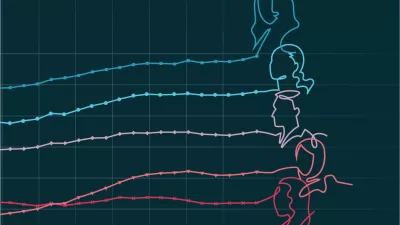News releases
Read the latest news from IHME about published research.The Lancet: New study reveals global anemia cases remain persistently high among women and children. Anemia rates decline for men.
In a new study covering three decades of global anemia data (1990–2021), a complex picture emerges of how several key factors play into the divergence in success stories among men, women, and children.
Maternal mortality in the US more than doubled between 1999 and 2019
A new study by investigators from IHME and Mass General Brigham found that maternal mortality rates have worsened from 1999 to 2019, hitting some racial and ethnic groups and states harder than others.
Global diabetes cases to soar from 529 million to 1.3 billion by 2050
More than half a billion people are living with diabetes worldwide, affecting men, women, and children of all ages in every country, and that number is projected to more than double to 1.3 billion people in the next 30 years, with every country seeing an increase.
Sickle cell disease is 11 times more deadly than previously recorded
Eight million people suffer from the hereditary disease which disproportionately impacts children, adolescents, and young adults.
UNAM y Universidad de Washington crearán “Red para Establecer Prioridades en Salud en el Siglo XXI”
El rector de la Universidad Nacional Autónoma de México (UNAM), Enrique Graue Wiechers, atestiguó la firma de una carta de intención entre la Facultad de Medicina (FM) y IHME, a fin de crear la Red Regional para Establecer Prioridades en Salud en el Siglo XXI: América Latina y el Caribe.
The Lancet: New study shows low back pain is the leading cause of disability around the world
A new Global Burden of Disease (GBD) 2021 study estimates that by 2050, there will be a 36.4% increase in cases of low back pain from 2020, with the highest increases in Asia and Africa.
Chronic respiratory disease is third leading cause of death globally with air pollution killing 1.3 million people
New findings on chronic respiratory disease (CRD) now show it accounted for approximately 4 million deaths worldwide in 2019.
IHME to advance US county-level health disparities research
The National Institutes of Health and the National Institute on Minority Health and Health Disparities awarded the Institute for Health Metrics and Evaluation $16.8 million to dissect health disparities at the county level in the US.
The Lancet: Largest US state-by-state analysis of COVID-19 impact reveals the driving forces behind variations in health, education, and economic performance
The most comprehensive state-by-state analysis of the impacts of COVID-19 across the USA, published today in The Lancet, reveals the underlying reasons why the pandemic has played out in vastly different ways across the country.
The Lancet: Most comprehensive study to date provides evidence on natural immunity protection by COVID-19 variant and how protection fades over time
Researchers say we should recognise the natural immunity in people who have recently been infected with COVID-19, but warn that their findings should not discourage vaccination because it is the safest way to acquire immunity.
Launch of new European research project on the cost of air and noise pollution
BEST-COST, which holds its kick-off meeting today, is a new Horizon Europe research project that aims to improve our understanding of the socioeconomic cost of environmental stressors in Europe.
The Lancet: Global health financing hits record high, historical gaps persist
A new global analysis shows total health-related financial assistance to fight COVID-19 in low- and middle-income countries (LMICs) in the first two years of the pandemic was a record $37.8 billion, which was 810% higher than the total spent on pandemic preparedness the prior two decades (2000-2019).
Global health consortium offers innovations to alleviate food insecurity, environmental degradation, and disease outbreaks
Leading experts in satellite imagery, machine learning, and health metrics are joining forces to illuminate emerging threats to health and well-being.
The Lancet: Pakistan faces double burden of communicable, non-communicable diseases, and persistent inequities
Before Pakistan plunged into a cataclysmic health emergency from its worst flooding disaster, the country was already confronting the burden of infectious diseases, the rising rates of non-communicable diseases (NCDs), and widespread disparities.
New report tracks latest trends in global cardiovascular health
Cardiovascular disease (CVD) remains the leading cause of death across the globe, according to a new “almanac”-style special issue of the Journal of the American College of Cardiology (JACC).














